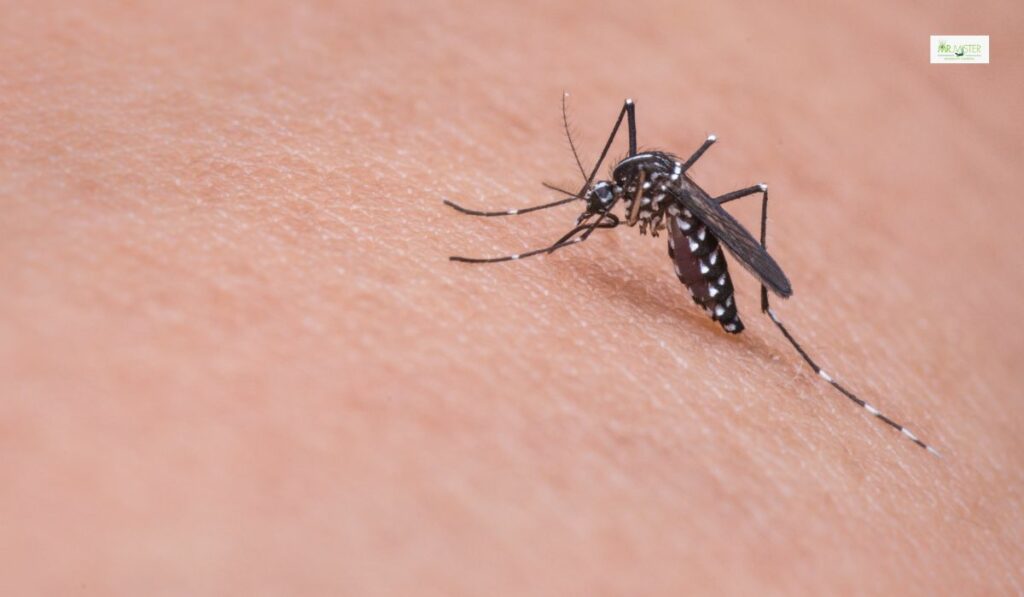Understanding The Mosquito Life Cycle
Mosquitoes in Atlanta are prolific breeders; a fact that has been made abundantly apparent in the statistics, which ranks Atlanta as one of the worst cities in the country for mosquitoes each year.
This means the threat of mosquito-borne illnesses is at an all-time high in Atlanta and parts of Northern Georgia, which is why mosquito control is your best option for maintaining a healthy lifestyle for you and your family.
Having a better understanding of how mosquitoes in Atlanta function and breed as well as when they’re most active is important for controlling these pests.
You can start by getting answers for the simple mosquito questions.
Why Do Mosquitoes Bite?
Not many are aware, but the average mosquito that causes those pesky red/itchy bites on your skin are primarily female.
These are the mosquitoes that lay eggs (or larvae) in standing water, creating a flock of new mosquitoes to pester you, your family and your pets for the remainder of the season.
Why do mosquitoes bite you?
It all starts with a chemical in your body which is released through your sweat.
This chemical can be detected by a mosquito while its 55 miles away, and when it finally reaches an area near you, it picks up your body’s carbon dioxide (released when you breath) and warmth level to pinpoint its prey: your skin.
Ironically enough, mosquitoes do not actually bite, instead they inject a syringe-like hypodermic body part containing two channels into our skin.
Mosquito Life Cycle
Mosquito Bite: As mentioned, the mosquito will inject you with two channels.
Through one of these channels, you’re injected with an anesthetic to dull the pain as well as anti blood-clotting chemicals.
Through the second channel, the mosquito then draws (or sucks) your blood from its injection point until it’s full.
Eggs/Larvae: Once a mosquito has gotten its fill of your blood, it will then use it as protein for their eggs.
The female mosquito then turns to standing or very still moving water to carry out the hatching process.
One mosquito will lay several hundred eggs at once.
These eggs (or larvae) can be found anywhere from the pond in your yard, rain gutters, old tires, fountains bird baths or even around your drains.
Hatching Stage: A mosquito’s larvae will hatch approximately 2 days after they are placed in water.
Though, this can be a longer process if eggs are hatching during the cold winter months.
Larvae from mosquitoes will shed skin four times as they grow, before finally reaching stage 4 of their hatching process.
Pupa, The Final Stage: Once larvae has reached level 4 of its growing stage, it will begin to pupate.
This is a resting, non-feeding stage that applies to all insect development when changing into an adult, much like the caterpillar emerging from a cocoon as a butterfly or moth.
The adult mosquito will emerge after approximately 2-3 days and immediately seek blood to restart the process and make more mosquitoes.
Taking Steps To Protect Your Home
Now that you have a better understanding of mosquitoes and how they function, you should take every measure necessary to prevent them from terrorizing you and/or your family.
This begins with a professional like Mr. Mister.
Conclusion
In conclusion, Atlanta’s mosquito problem is a serious concern, with the city consistently ranking among the worst for mosquito activity.
Understanding the mosquito life cycle, from biting to breeding, underscores the need for effective control measures. Mr. Mister, a professional mosquito control service, is recommended for comprehensive protection.
FAQs
Why do mosquitoes bite?
Female mosquitoes primarily bite to obtain blood for their eggs. Chemicals in human sweat attract them, and they use carbon dioxide and warmth to pinpoint their prey.
What is the mosquito life cycle?
The life cycle involves biting, laying eggs in standing water, hatching larvae, pupation, and the emergence of adult mosquitoes. This cycle repeats as mosquitoes seek blood to restart the process.
How can I protect my home?
Eliminate standing water, a breeding ground for mosquitoes. Consider professional services like Mr. Mister for comprehensive mosquito control to safeguard your home and family.
When are mosquitoes most active?
Mosquitoes are most active during dawn and dusk. Taking extra precautions during these times, such as using repellents, can help reduce the risk of bites.
Do all mosquitoes carry diseases?
No, but some species do. It’s essential to protect yourself from mosquito bites regardless, as certain species may transmit diseases like West Nile virus or Zika.
Can mosquitoes breed indoors?
While most mosquitoes prefer outdoor breeding sites, some species can breed in stagnant water indoors. Regularly check and eliminate any standing water inside your home to reduce the risk.
How long do mosquito eggs take to hatch?
Mosquito eggs typically hatch within 2 days after being laid, but this process may extend during colder months. Eliminating standing water promptly disrupts this cycle.
Are mosquito-borne diseases treatable?
While some diseases have treatments, prevention is crucial. Avoiding mosquito bites through protective measures and mosquito control is the most effective strategy.
Can I use natural remedies for mosquito control?
Some natural remedies, like citronella candles or essential oils, may offer limited relief. However, professional mosquito control services often provide more effective and long-lasting solutions.
Are children more susceptible to mosquito bites?
Yes, children are often more attractive to mosquitoes due to their smaller size and higher body heat. Using protective measures, such as clothing and repellents, is essential for their safety.
* Schedule a Free Mosquito Control Consultation – 404-941-0720 *
* Guaranteed Results * 100% Biodegradable * Locally Owned






